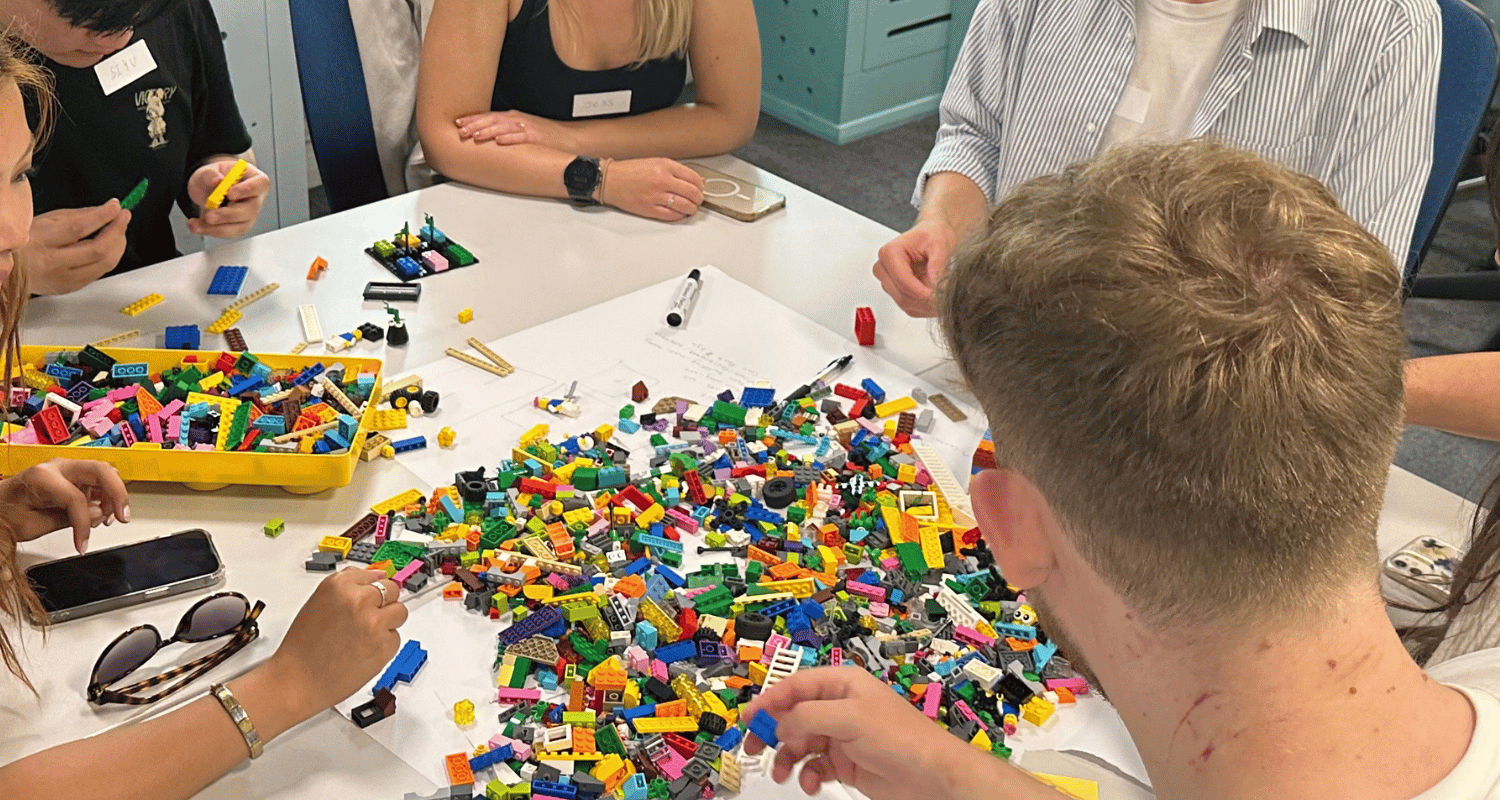University life is often associated with rigorous academics, long study hours, and high levels of pressure to excel. But in this mix, it’s easy to forget that creativity, collaboration, and fun are essential to both learning and personal development.
Enter the Lego Game Workshop, a refreshing, hands-on approach to boost innovation and teamwork among university students while bringing out their inner child!
To encourage team working and creativity, Priyanka Mittal, Scrum Master in the University of Exeter’s Digital team, designed a Lego game workshop for the University’s post graduate bioscience students.
This blog post shares how Priyanka’s Lego game workshop created an engaging platform for students to collaborate, think creatively, learn about agile Scrum ways of working, and have fun!
Why did we host the workshop?

Dr. Yusra Siddiqui from the Faculty of Health and Life Sciences attended Priyanka’s LegoScrum workshop at Times Higher Education’s Digital Universities UK event hosted by the University of Exeter earlier this year.
Dr. Yusra commented she was impressed by how the workshop fostered creativity, collaboration, teamwork, and fun. This sparked an idea to apply the concept to her new students, aiming to create an open and collaborative environment by offering a similar workshop.
The aim of the session was to foster a sense of connection among the students, ensuring they establish meaningful bonds even before officially beginning their postgraduate studies in Biosciences.
The workshop: setting the scene
Following introductions and ice breaker activities to encourage students to bond, break down communication barriers, and lay the foundation for collaboration, we dived in to the Lego workshop. it was the first time this group of over 30 students were meeting! It was important to create an environment where everyone felt comfortable and confident to participate.
1. The challenge: problem-solving with Lego

The core of the workshop was the Lego challenge, aimed at igniting creativity.
Students were divided into four teams, each tasked with building different city elements such as schools, hospitals, and gardens, which were later combined to form a collaborative city model, symbolising teamwork. This challenge encouraged out-of-the-box thinking, asking students to turn abstract concepts into tangible creations.
During this phase, creativity flowed freely, with no “right” or “wrong” answers. The focus was on exploration, innovation, and brainstorming. Some teams chose sleek, minimalist designs, while others built intricate, multi-level structures. The variety of ideas sparked discussions and encouraged students to appreciate different perspectives.
2. Reflection and feedback

Next each team explained the rationale behind their model and the challenges they faced, gathering feedback from peers. This helped the group learn to give and receive constructive criticism – a skill crucial in both academic and professional settings.
What did students gain from this workshop?
1. Collaboration and teamwork
Each brick added to a Lego creation symbolises contributions from different team members. Throughout the workshop, participants learn the importance of effective communication, delegation, and compromise.
2. Enhanced creativity
Lego bricks are the ultimate tool for open-ended exploration. Whether it’s a simple structure or a complex model, these workshops teach students how to approach problems creatively and experiment without fear of failure. In fact, sometimes the most unexpected designs end up being the most innovative.
3. Critical thinking
A Lego workshop is not just about fun; it’s about finding solutions. While students may be busy building, they are also engaging in strategic thinking. They must figure out how to make their designs functional, solve engineering challenges on the spot, and troubleshoot as they go.
4. A fun break from the usual routine
A Lego game workshop offers a break from the usual university routine, providing students with a chance to unwind and let their creative minds roam free!
Why you should host a Lego workshop?

A Lego game workshop offers students an opportunity to develop “soft skills” in a light-hearted, engaging setting.
Prioritising these interactive experiences not only foster well-rounded students but also create a culture that values creative problem-solving and collaboration. Whether students are in business, engineering, bioscience or the arts, these workshops offer something for everyone.
– Written by Priyanka Mittal, Scrum Master
Take a look at our other blog posts about agile ways of working in the Digital team.

